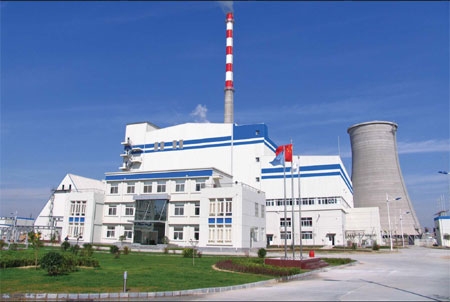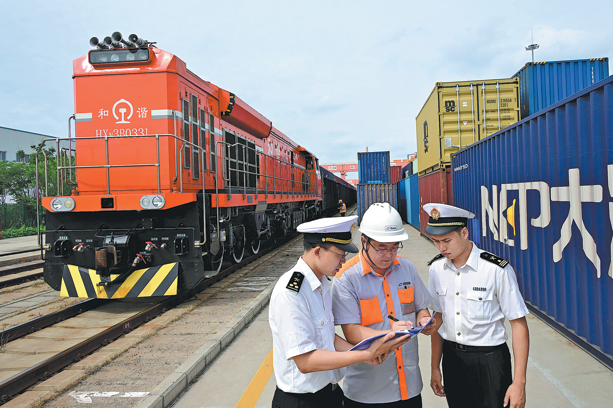Biomass baby keeps on growing

|

DP CleanTech's plant in Shanxian county of Shandong province is the first biomass plant in China.
Photo Provided to China Daily
|
After a hiccup, company sees a bright future
At 3 pm the offices at DP CleanTech in Beijing are almost empty.
This is a good sign for the multinational biomass energy company because most employees are out in the field preparing for new projects as DP CleanTech plans to rebound from last year's industry slowdown in China.
"This year is getting much better. And it's going to be even bigger this time considering the large amount of fuel that's increasing every year," says Simon Parker, president and chief executive officer of DP CleanTech. The company has an estimated 40 percent market share in China by the number of biomass power plants.
The company's current installed capacity of 858 megawatts is expected to rise by 120 mW this year, says Meng Xiangwen, chief operating officer of DP CleanTech. The company is also confident it will sign new contracts for 240 mW, the equivalent of about eight biomass energy power plant projects.
With an increased interest in growth, Meng predicts the investments that receded late last year will return in the second half of this year.
Biomass energy, power and heat generated from burning biomass, has been developing rapidly in China for the past decade. The main fuel for the biomass market in China at the moment is agricultural waste.
According to the National Energy Administration, the installed capacity for biomass energy totaled 5.5 gigawatts by the end of 2010. The aim is to reach 13 gW by the end of 2015, compared with 10 gW for solar energy, which is more expensive and regarded as less reliable.
The number of biomass power plants soared until late 2010, when the National Development and Reform Commission, China's top economic planner, withdrew the licensing authority from the regional levels in an effort to regulate the distribution of power plants.
Affected by the policy change, DP CleanTech secured only five contracts last year, compared with 14 in 2010.
"The policy change was bad for our revenue in the short term. But it is what needs to happen to make the market profitable in the long term," Parker says.
As the industry evolves, more thought is going into how to build power plants. Parker says in the past, many conventional power companies did not fully understand how to make a biomass power plant successful.
|

Simon Parker says the biomass industry in China will grow rapidly in the next five years. Photo Provided to China Daily
|
"Now, before they build biomass power plants, they do a lot of research and study where to source the fuel and what the alternatives are," Parker says.
The government is also pitching in and will provide 4.75 billion yuan ($754 million, 566 million euros) in subsidies to build 200 green energy demonstration counties by 2015, boosting local and social investments that are estimated to be four times as high as the government subsidy, according to Xiao Mingsong. He is an industry expert and the secretary general of the Committee of Biomass under the Chinese Association of Rural Energy Industry.
Another change in the industry has been the price of power. Before July 2010 the cost of on-grid power fluctuated between regions. The current unified price of 0.75 yuan a kilowatt-hour enables most power stations to make money. Previously the national average was 0.63 yuan a kilowatt-hour.
With policies set and the market regulated, the biomass energy industry has now entered a new phase of development where expertise in local fuel collecting and power plant management will be stressed, Xiao says.
"Biomass energy companies should try by all means to slash their costs and increase their profitability, which has been a major bottleneck for the industry in the past."
DP CleanTech, the first company to apply the biomass technology in China, echoes the view as it is seeking edges in advanced technology, new markets and a unique business model.
Established in 2004 in Beijing by a small team of Chinese, Danes and British, the company licensed the world-leading biomass technology from Bioener in Denmark for $500,000 (381,000 euros) per power plant.
Two years later, DP CleanTech managed to build the first biomass power plant in China, which was approved as the national pilot for biomass energy plants. It has built 34 biomass power plants in China at an average of one new project every two months. Eleven more are being built.
In order to lower operational costs and localize biomass technology, DP CleanTech bought Bioener in 2009. The acquisition helped make the company's combustion efficiency 30 percent higher than its peers in China.
The company is now looking more to southern China, especially Guangxi Zhuang autonomous region, Yunnan, Sichuan and Guangdong provinces, where forestry and agriculture are concentrated.
In overseas markets, DP CleanTech gained access to the European market by buying Boiler Works, a boiler maker in Denmark. It has now established 17 biomass power plants in Europe and one in Thailand.
"The UK is huge at the moment, while Denmark is slowing down," Parker says. "We are also doing a lot of work in Eastern Europe, Africa and India. And South America is expected to be our next big market.
"Wherever there is a solid agricultural foundation and good government policies, we want to be the first there."
DP CleanTech's European headquarters is in Copenhagen, and Beijing remains its home in Asia.
Rather than defining itself as a European or Chinese company, DP CleanTech "has a very strong agenda to globalize its operations".
"My vision for the company is to integrate the best each place has to offer. If we start to disintegrate a bit and start thinking like a local company only, we will go down to the level of our local competitors," Parker says.
The combination of a much-untapped market in China and the cutting-edge technology offered by Europe has helped the company to thrive in both places.
"In China our competitors are mostly boiler manufacturers without the all-around solutions we provide. In Europe, we offer the same products with a more competitive price because of our global sourcing system."
The logistical supply chain of fuel will remain a major challenge for the biomass industry in China in the next few years. A unified price mechanism for fuel that can ensure the interests of farmers and the biomass energy companies has yet to be set, Xiao says.
"If we can further regulate the availability and the price of fuel, then the banks would finance the power plants," Parker says.
Every year China produces about 800 million metric tons of biomass from agriculture alone, and only about 70 percent of the waste is recycled. In Denmark more than 80 percent of its biomass waste is converted into energy.
"The biomass industry in China will be on the fastest phase of its growth in five years, and we have 10 years of very strong views on the biomass industry in China, especially on the waste-to-energy market," Parker says.
The waste-to-energy or energy-from-waste products are electricity and heat generated from urban garbage.
"The biomass industry in China will still be very much a baby for the next 10 or 20 years," Parker says, adding that he is a big believer in China being the largest biomass market in the future.
sunyuanqing@chinadaily.com.cn
Today's Top News
- Nation's euro bond sale shows investors' confidence
- No soft landing for Tokyo's hard line
- Commerce minister urges US to increase areas of cooperation
- Strong demand for China's sovereign bonds signals global confidence
- Ministry urges Japan to 'maintain self-respect'
- Forge closer ties with Zambia, says Li






























